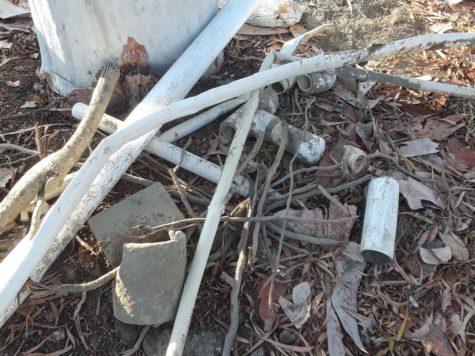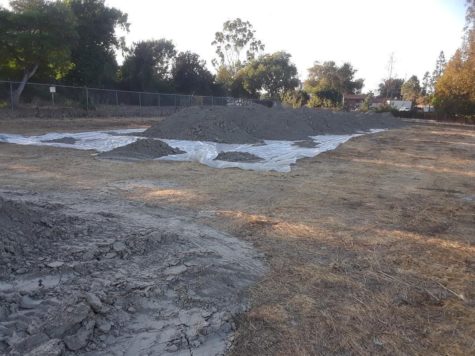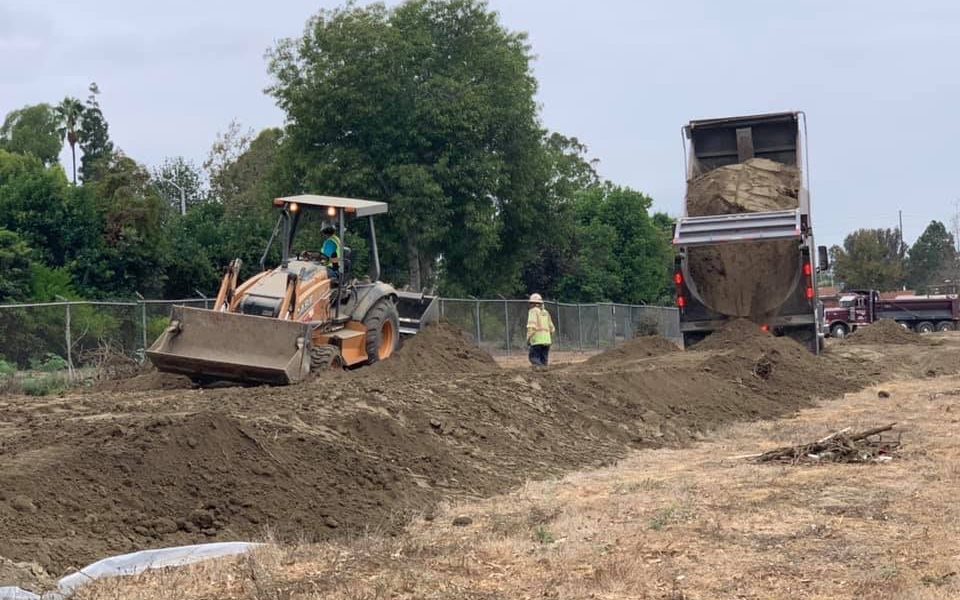Members of the Juaneno Band of Mission Indians, Acjachemen Nation-Belardes and California Cultural Resources Preservation Alliance, Inc. are suing Long Beach State for actions the university took in 2019 when they began dumping excess, trash-laiden dirt on Puvungna.
“It [Puvungna] holds a certain sacredness to a lot of the tribes in the area,” said Chairman Matias Belardes.
Initially filed in October of 2019, the lawsuit seeks to hold the university accountable for relocating the debris from construction on the Parkside North Dormitory without first performing an environmental impact report. This is required to be performed under the California Environmental Quality Act and would analyze how such debris would affect Puvungna.
Belardes said they are also seeking to establish a memorandum of understanding with CSULB which would require the university to consult the group before making any further decisions regarding the 22-acre plot of land, which is recognized on the National Register of Historic Places.
The university currently consults with the Native American Graves Protection and Repatriation Act group on campus, but Belardes said they don’t represent him and his tribe.
“We found out a few months back that there was some dumping of the dirt on the grounds itself,” Belardes said. “When we weren’t getting any response from the university themselves in the powers that be we decided, because of the nature of what they were doing, we thought that it would be the best to go the lawsuit route and get their attention with that.”

The chairman made it clear that the tribe’s main point of contention was that the dirt still contained trash in it when placed onto the land. Rebar, wiring and other construction-related materials also came with the piles, things Belardes said qualified the action as “dumping” rather than relocating.
The dumping first began in September of 2019, the Daily Forty-Niner reported. At that time, Craig Stone, director of American Indian studies, said that it was the third time the university had made decisions without consulting the community and had been told just a day prior that Puvungna would not be affected by the project.

Gregory Woods, director of news media service for CSULB, said it was not customary of the university to comment on pending litigation, but did offer this statement:
“We are understanding and respectful of the interest in the university’s 22-acre parcel north of Beach Drive and east of Bellflower Boulevard. This past fall, we relocated soil to this site that had been excavated from an adjacent construction project. The work was done under site-monitor protocols in place at the time. As a good-faith gesture, this work was concluded when some external stakeholders expressed concerns. This method of managing excavated earth was based on the original counsel of both internal and external Native American advisors to keep the soil from campus here on site. This area will be included in the university’s broader, inclusive planning process taking place over the next two years. We are hopeful this process will yield a vision for this area of our campus that is responsive both to the evolution of our university as well as the meaning that some stakeholders have ascribed to this land. We have always sought to listen to the diverse perspectives from our broader community, and remain committed to ongoing dialogue.”
Due to the coronavirus pandemic, court proceedings have been delayed, but Belardes said he and his community are not giving up anytime soon.
“Right now it’s just in limbo, COVID kind of threw a curveball for everybody,” Belardes said. “But the main thing was we’ve gotten them to stop dumping, and we’ve gotten the dialogue started.”
Belardes said he feels the university’s actions have been rooted in both carelessness and blatant disregard.
“Whether it’s ignorance, so they said, or their mentality that they’re going to do what they want to do…this is a special place that whatever we do going forward, or plans coming forward, we have to look at this in a special way,” Belardes said. “So hopefully that MOU will take care of that and then going from there, we hope that works out.”
If the university doesn’t settle with the terms of the lawsuit, Belardes said the tribes will continue to pursue their goal of having a seat at the table on all discussions.
“There could have been a lot of different avenues that were done and consulted on before it even got to this point, hopefully we could’ve avoided all of this” Belardes said. “But we are where we are with the lawsuit and hopefully it gets their attention.”





Pingback: Documents show CSULB had intentions of creating parking lot on Puvungna despite claims made by administration - Daily Forty-Niner
Pingback: Tribal groups across California join forces in fighting CSULB - Daily Forty-Niner
Pingback: Inside the struggle to preserve Puvungna – The Signal Tribune newspaper
Pingback: Native community continues to struggle with CSULB over Puvungna, access being restricted due to COVID-19 regulations - Daily Forty-Niner
Pingback: OPINION: Native American sacred land on CSU Long Beach campus should be permanently protected • Long Beach Post News